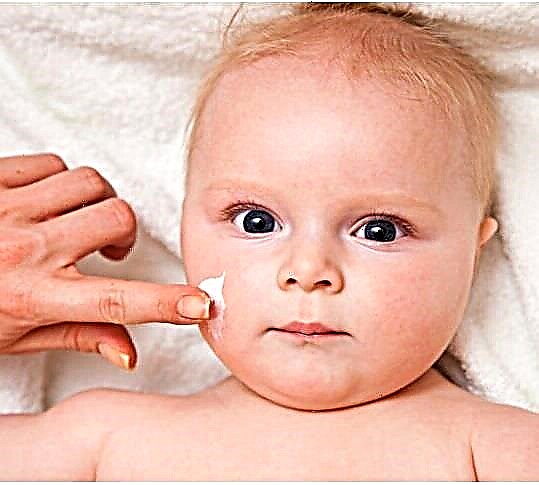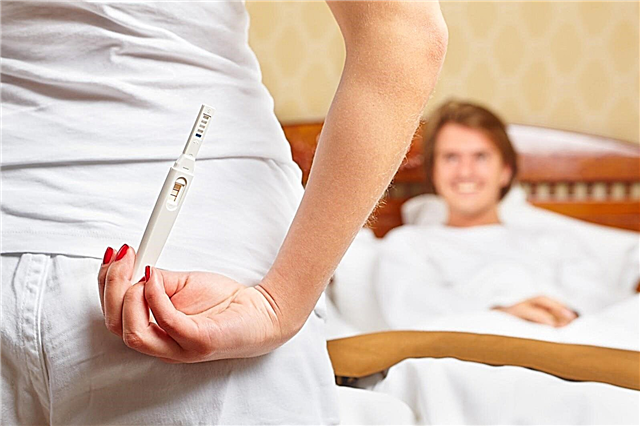
After the news about the upcoming motherhood, the woman usually plunges into a dreamy state. She imagines what the baby will be like, how they will walk, play, what beautiful toys he will have. But from a joyful period, the expectant mother can "return to the ground" early toxicosis. And you will have to try to get through this unpleasant period.
What it is?
When we hear the word "toxicosis", we imagine a poor, nauseated pregnant woman. However, doctors do not understand toxicosis as specific symptoms during pregnancy, but intoxication of the body. And it can be caused not only by an "interesting" position, but also by the impact microbes, viruses, toxic substances, allergens.
If the factors acting on the body appeared from the outside, toxicosis is called exogenousif they are internal, formed as a result of metabolism, then toxicosis endogenous, this is precisely the condition of pregnant women in the first trimester.

After conception, progesterone is actively produced in a woman's body - a hormone that is very important for maintaining pregnancy. But it has a lot of "side" effects, which include headaches, activation of saliva production and overexcitation of the vomiting center of the brain.
Toxicosis is not an obligatory sign of pregnancy. There are many women who have given birth to one, two, three or more children and have never encountered such a phenomenon as toxicosis. And there are women who can remember only one thing about their pregnancy and childbirth, the most vivid memory - a terrible, debilitating toxicosis.
The latter, it should be noted, are the majority. According to statistics, to one degree or another, toxicosis occurs eight women out of ten... This does not mean that the remaining two out of this dozen are wrong. The absence of toxicosis is the norm.

Causes
Despite the fact that there are less and less “white spots” in the human body, scientists have not yet succeeded in establishing the cause of toxicosis during pregnancy. The most likely reason is the work of a woman's immunity. The immune system, in theory, should rise up and destroy an organism that is half alien in its genetic makeup (the paternal part of the genes in the embryo should be recognized by the immune system as foreign), but the hormone does not give immunity to the immune system to deal with the embryo progesterone, which from the first minutes after conception begins to suppress the immune system.
Progesterone is a strong immunosuppressive agent. The suppression process manifests itself at the biochemical level, and it is the metabolic products that cause intoxication.
In women with very strong immunity, usually there is no toxicosis, or it is weakly expressed. The immune system will withstand the suppressive effects of hormones. Accordingly, a weakened or weak immunity from birth creates favorable prerequisites for the development of toxicosis.


Symptoms
The first signs of the earliest toxicosis can appear as early as 6 weeks of pregnancy, that is, a few days after the start of the delay. But more often than not, the first signs make themselves felt at 7-8 weekswhen a woman begins to form a primary placenta. The unpleasant condition will end only by the end of the formation of the placenta, when the "child's place" will take over all the functions of providing the child with nutrition, oxygen, and removing the products of his metabolism.
Usually this process ends by week 14 pregnancy. Thus, 1 trimester, coming to an end, will reduce symptoms, and gradually toxicosis will subside.
Symptoms can be different, separate or just a group, it all depends on the individual characteristics of the pregnant woman's immunity. The most common symptoms are:
- nausea (sometimes nauseous up to 20 times a day), nausea is most pronounced in the morning after waking up and after eating;
- headache (up to the development of migraine);
- intestinal disorders;
- dizziness attacks;
- intolerance to odors, tastes (previously favorite or neutral odors suddenly become unpleasant, strong, irritating).


The severity of toxicosis is determined not only by the description of symptoms, but also by laboratory tests: acetone rises in the urine, the leukocyte formula of the blood changes.
Not every toxicosis needs medical attention. As a natural state, it is able to pass by itself, but not always. Observe your symptoms and see your doctor if you find signs of second or third degree toxicosis.
- 1st degree - vomiting no more than 3-4 times a day. Weight loss due to deterioration does not exceed 3 kilograms. The skin looks healthy, elastic, mucous membranes are sufficiently hydrated, pressure and pulse are normal.
- 2nd degree - vomiting up to 8 times a day. The woman feels very lethargic, tired, has severe headaches, bad breath appears, the pressure is low, the pulse exceeds normal, the skin is dry, weight loss is from 5 to 8 kilograms. Medical attention required.
- Grade 3 - vomiting more than 15 times a day, dehydration, weight loss of more than 7-8 kilograms, pulse very fast, low pressure, tongue and lips dry. The condition can be life threatening for a pregnant woman.

Who suffers more often?
Not a single doctor and professor will be able to tell a woman planning a pregnancy in advance if she will have toxicosis, or he will bypass her. There is still a lot of little studied in the functioning of the immune system, and therefore it is rather difficult to predict the behavior of the immune system. However, obstetrician observations allow list of risk factors... Their presence does not necessarily mean that there will be toxicosis, but the chances of it increase:
- the age of the pregnant woman at the time of conception is up to 20 years and after 35 years;
- a history of kidney disease, immune system and endocrine disorders;
- the presence of toxicosis in a previous pregnancy;
- gynecological diseases (especially endometriosis);
- the presence of bad habits - smoking, alcohol, drugs;
- toxicosis in your own mother;
- change of place of residence to a region with a radically different climate (especially when moving from the south of Russia to the north);
- women with anemia.

Treatment
If a woman has a second or third degree of toxicosis, she is prescribed medication support... For treatment, antipsychotics are used (for example, "Droperidol"), which suppress the activity of the vomiting center of the brain. For the same purposes, "Relanium" and "Cerucal" can be used.
If the degree is higher than the second, then you need to restore lost water-salt balance... To do this, they recommend droppers with saline, vitamins, inject glucose, and give sorbents. In severe cases, hormonal treatment is started. Antihistamines with antiallergic effect also help.
Severe toxicosis may require a procedure such as immunocytotherapy... As part of the method, an extract of her husband's lymphocytes is administered subcutaneously to a pregnant woman. Immunity shifts its "attention" to a new threat, and the woman feels better. But the relief is temporary, then the attacks of nausea and vomiting come back again.


If the condition of the pregnant woman is severe, within 12 hours, therapy is carried out with the above means and methods, in the absence of an effect from them, the condition of the woman is qualified as a threat to life, the question of terminating the pregnancy in order to save the mother's life is considered. But the need for such measures is very, very rare.
Doctors do not recommend pinning high hopes on homeopathic remedies, of which there are many and whose manufacturers claim that the remedy will completely save the expectant mother from toxicosis. Homeopathic medicines have no proven effectiveness, they have not undergone clinical trials, doses of active substances in a decimal dilution cannot affect the condition in any way.

Useful Tips
To survive toxicosis, if it is not threatening, the following tips will help:
- take advantage of aromatherapy - peppermint oil, citrus and conifer oils reduce nausea;
- drink tea with a mint leaf in the morning - this will relieve morning sickness;
- take with you to work or school a small bottle of clean drinking water with added lemon juice;
- drink rosehip broth, fresh sour cranberry juice prepared on your own - this will help avoid bouts of nausea;
- try to eat, albeit in small portions, albeit a little bit, but be sure to eat;
- products for which intolerance has arisen, replace with similar in composition (milk can be replaced with kefir, and meat - with fish, and so on);
- use salt and salty, if vomiting often torments - this will help, together with abundant drinking, restore the water-salt balance, without bringing the situation to the point where it is necessary to inject saline solutions intravenously;
- saturate the diet with fruit;
- take vitamins (vitamin deficiency in itself is a prerequisite for the development of toxicosis).

Build your day right. Don't get up abruptly in the morning. Lie down, let yourself wake up, cook in the evening and put a plate with crackers, dried fruits next to the bed - a piece eaten right in the morning will fill the usual morning glucose deficiency and reduce nausea.
Avoid harsh irritating odors walk more often in the fresh air, rest more, sleep with the window open and temporarily reduce mental and physical activity. Try to keep yourself in a good mood and positive mood - the psychogenic factor of toxicosis is of great importance. Avoid chronic stress.

A specialist will tell you about toxicosis in the first trimester in the next video.



